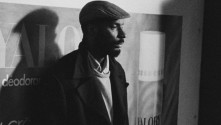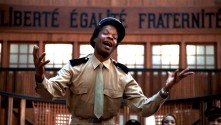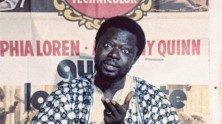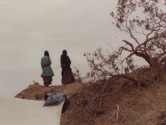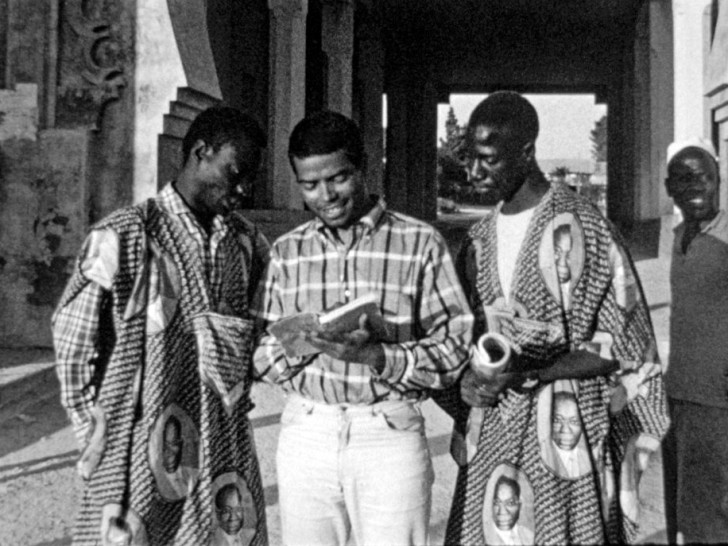
Ballade aux sources
Mauritania, 1965, digital video, black & white, 31 min.
No dialogue.
Copy source: Ciné-Archives
Ballade aux sources is both Med Hondo’s first film and his least known. Hondo seldom mentioned it, and, when he did, often dismissed it as a mere sketch, a training ground to demonstrate to himself that he had the ability to make a film. Out of circulation for decades (it is not clear whether it was ever screened theatrically), it was recently found in the garage of his codirector, French journalist, photographer and archaeologist Bernard Nantet.
Shot over three months in 1965 (Hondo was thirty years old) during a trip to North Africa organized by Italian journalist and anthropologist Attilio Gaudio, the film’s title evokes Aimé Césaire’s Négritude classic Cahier d’un retour au pays natal / Notebook of a Return to the Homeland. As Annabelle Aventurin explains, "Directing it reportedly involved twenty reels of reversal film shot with a 16mm Beaulieu camera and two reels of magnetic sound. Although their sound equipment was stolen during the trip, they recorded, upon their return, a voiceover text written by poet André Laude and spoken by Med Hondo himself over music by the late and great Guinean guitarist musician Kante Facelli’s classic song 'Kadia Blues.' Unfortunately, the sound is currently in a poor state of preservation and efforts are being made by Ciné-Archives to recover it and remarry it to the image track."
Opening with a shot of Med Hondo looking through a barred fence (as though a prisoner casting an alienated gaze at his surroundings) at life unfolding in the Parisian megalopolis (neon lights, passengers coming out of the metro, mannequins, street signs), the camera ends up focusing on the sky and cuts away to his boat trip to Africa, where he visits Algeria, Tunisia—including the Kerkennah archipelago and the island of Djerba—among other places. During his various stops, he rediscovers eclectic spaces, including deserts, cities and ruins from antiquity and foregrounds architectural traces of the African continent’s multiple, complex and irreducible histories and identities, which include Berber, Arab, ancient Roman, Christian, Jewish and Islamic cultures.
The film establishes many of Med Hondo’s thematic concerns: the relationships between Africa and Europe; the dialectics of alienation and belonging; the quest for and interrogation of identity (self and collective identities, the pluralities and contradictory nature of identity, the drive to bring them together, in productive conversation); cinema and of Africa.




